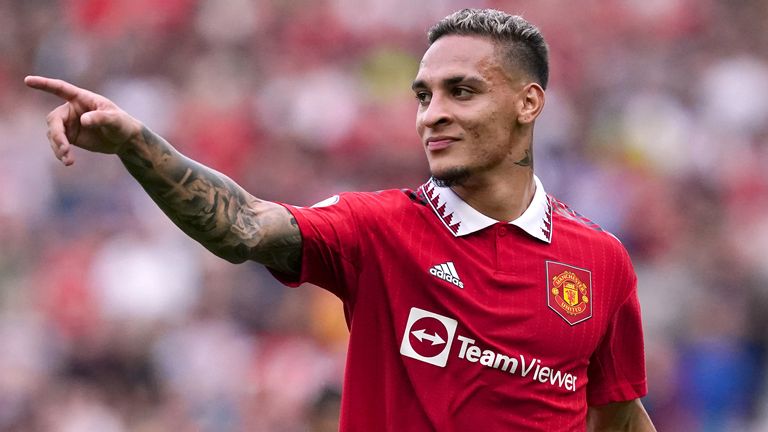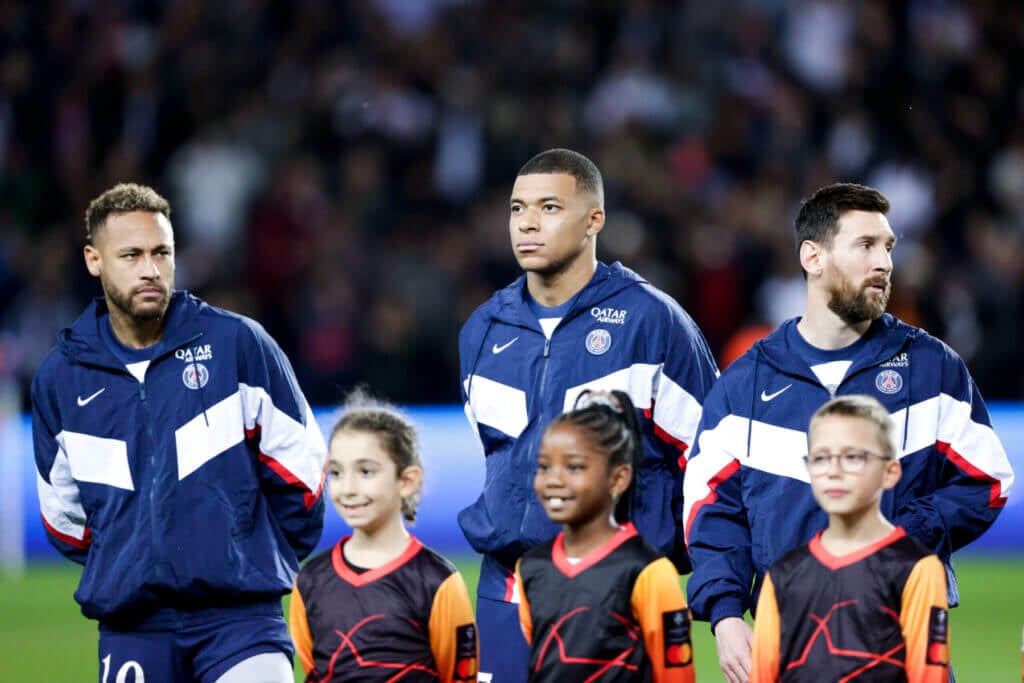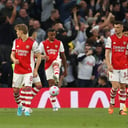[article]
Inside FSG's £240m Anfield plan as naming rights deal could hand new owners major boost
An in-depth look at Liverpool's Anfield Road development project as naming rights remain on the table for owners FSG
If Fenway Sports Group are well into their final act as owners of Liverpool FC, the monument to their Anfield progress will be there for all to see by the summer of 2023.
Whenever FSG do eventually decide to hand over the keys to the Shankly Gates, they will walk away from Merseyside having dragged one of the most iconic sporting venues on the planet into the 21st century.
Perhaps, for all the success enjoyed under the managerial reign of Jurgen Klopp, the true stamp of the Americans' era will be the infrastructure put in place during their tenure. Having finally made the decision to vacate the famous Melwood site, the move to the AXA Training Centre two years ago is one that will hold the next generation of Reds stars in good stead at Kirkby.
But while 'the AXA' - as it is informally referred to - is the all-purpose facility needed for a modern, top-level football club to improve, it is
FSG's redevelopment of Anfield that is the more obvious emblem of their accomplishments to a worldwide fanbase.
The £110m redevelopment of the Main Stand enabled Liverpool to take Anfield's overall capacity from 45,000 to 54,000. The giant structure officially opened in September 2016 as the Reds hosted Leicester in front of their biggest crowd since 1977. A total of 53,075 packed themselves into the ground to watch the Reds tear the then-champions apart as Klopp's side convincingly won 4-1 on the day.
A six-week consultation period with local residents was undertaken for that in October 2014 after Liverpool City Council had unanimously approved the application to rebuild the Main Stand. In-house research further alerted Liverpool to the power of their sprawling fanbase, with an estimate suggesting the club had 580m supporters across the planet. It made the expansion of the ground something of a no-brainer.
“That size of fanbase means there’s a tremendous amount of opportunities out there for the business," CEO Billy Hogan told the ECHO at the time. "We’ve got an international fanbase and supporters come from across the world because they want to visit Anfield. We saw that passion this summer during the tour of the USA, which was replicated in the Far East and in Australia the previous year."
Renaming of Anfield itself had never been on the agenda, for obvious reasons, but senior figures at the club did consider naming rights for the Main Stand before it was established that revenue could be raised through the individual hospitality boxes within the stand itself instead.
“We have always tried to be on the front foot and pioneering in the area of commercial partnerships," said former commercial director Olly Dale in August 2017. "Our partners provided a critical stream of income that enables us to be competitive and give Jurgen (Klopp) and the football team the resources they need to be successful too. It’s about having high quality partners that enables the club to keep moving forward."
Like the Main Stand, naming rights is something that is once again under consideration for the Anfield Road project. Liverpool have not disclosed how much they earn specifically from AXA's moniker, but an estimate suggests the insurance firm pays £30m per year to have their logos on the Reds' Nike-branded training kits and the complex itself.
That, effectively, means the ground has already paid for itself having passed its two-year anniversary earlier this month. It's easy to see why naming rights appeal for clubs across the continent when they, through naming rights usage, effectively become additional infrastructure at no extra cost.
"We haven't finally decided yet how to proceed with that specifically at the moment," the club's managing director Andy Hughes told the ECHO earlier this year. "There are obviously opportunities to sponsor some lounges, so we're still reviewing it all."
Over the summer, CEO Hogan confirmed the prospect of
naming the Anfield Road stand was still under consideration, telling The Athletic: "It's certainly something that we will consider. We didn't for the Main Stand; we may for Anfield Road. We wouldn't say no to it, but it's not something we're actively pursuing currently. That size of fanbase means there’s a tremendous amount of opportunities out there for the business."
But how much would the rights be worth for any would-be sponsor of the stand that currently houses the away support on match-days?
"There are some compelling reasons why naming rights sponsorship is worth the money," writes advertising strategist Kim Skildum-Reid. "There are also some big pitfalls. First and foremost, naming rights sponsorship gives you a dominant platform for leverage. No one else in the sponsorship roster will have access to what you do. No other sponsor will have the control to create the perfect benefits package that you do.
"If you want this huge platform, however, you have to be prepared to use it. When you buy any sponsorship, you are buying opportunity, not results. It is leverage that provides the results. This is no different for naming rights, except the opportunity is that much bigger, and if you don’t make something of it, the opportunity wasted is massive.
"Which brings me to a downside of naming rights: It’s like buying a license for corporate laziness. It’s big. It’s visible. It’s just so easy to get self-congratulatory about it and forget that it has to be worked."
Amazon owner Jeff Bezos, who is currently slated as the fourth richest man on the planet, has paid a reported $400m for the right to rename the KeyArena in Seattle as the Climate Pledge Arena and naming rights for stadia is commonplace among American sports, particularly in the NFL, where teams regularly turn out at the likes of the Levi's Stadium, the FedEx Field and the MetLife Stadium. It is the Premier League and the upper echelons of European football where the Reds will be able to compare and contrast any real potential revenue streams, however.
Manchester City are reported to earn £15m a year from Etihad Airways, while Bayern Munich fetch just under £7m from insurance firm Allianz. Arsenal are said to earn £40m a year from Fly Emirates to sponsor both the club's kits and the stadium itself.
In 2016, Hogan flew to China to meet different companies whose interest on becoming naming partners for the Main Stand was strong. Liverpool were eager to find a partner who could commit to a 10-year deal worth between £70-£90m. A similar situation could still come to pass over the Anfield Road end with over eight months to go until the first fixture is played in front of the new stand.
Coincidentally, the idea for naming rights is said to be traced back to 1912 when Fenway Park opened in Boston. According to influential American finance publication, Forbes, the home of the now FSG-owned Boston Red Sox was housed in the Fenway neighbourhood of the city but the building's proprietor at the time also had a realty company by the same name.
Over 100 years later,
the Fenway organisation are once again weighing up the merits of selling off the rights for sponsorship.
"Another upside for really big naming rights (think: stadiums) is that there are a number of studies that have shown that, upon announcement of naming rights," adds Skildum-Reid. "The company’s market capitalisation increases significantly. That said, those same studies also show that, in most cases, those increases are not sustained for very long.
"In any case, I know it’s a factor in some decisions, and if you look at stadium naming rights in America, the fact that over 50% are currently held by banks, car companies, and airlines – three of the industries under the most pressure in the past few years – I don’t think that’s a coincidence."
The road to this point has been a long winding and costly one for Liverpool. Initial consultation began way back in November 2019. The club distributed over 5,000 leaflets to people who live around the area to gather feedback on the proposed expansion of the stadium.
The plans were designed for local residents, businesses and supporters to learn more about the aim of increasing the Anfield capacity. A web portal was subsequently published online for anyone seeking more information, while a pop-up stand on Anfield Road was also set up before games against Brighton and Everton in December of that year.
That move came after the club had taken the decision to scrap existing plans to redevelop Anfield. FSG allowed a September deadline to lapse before drawing up fresh blueprints that increase capacity beyond the 60,000 barrier. Liverpool were met with some resistance for those initial plans before concerns were largely soothed by the public consultation process of the winter.
Plans were then shelved in April of 2020 as the ramifications of the coronavirus pandemic started to become more obvious. Liverpool placed a 12-month pause on the work in the hope they would be better placed to navigate their way through further down the line.
The pandemic came at a cost for
Liverpool. The building of the additional seats, which were drawn up by London-based architects KSS who also handled the AXA project, were initially slated to cost £60m but that has now risen to £80m when it came to a ground-breaking ceremony
that was attended by Klopp in October 2021. Before then, planning permission was officially given in June when the planning committee voted 6-2 in favour of the expansion.
"Everything's better with fans," said Klopp as he braved the elements to plant the first spade in the ground last year. “But 53,000 were not bad, to be honest, it already feels like 100,000. I cannot imagine how 60,000 will feel. I really love the idea!
“Since I’m here – and not because I’m here but since I’m here – so many things have happened which obviously show [the importance of fans]. With all the great history of this club, and building the future as well: the training ground, the Main Stand and now this new stand. It’s absolutely incredible.
“It’s very important, I know there is some criticism in moments where we don’t invest – but this club [has] always invested, just slightly differently. I like the idea of that."
[/article]




